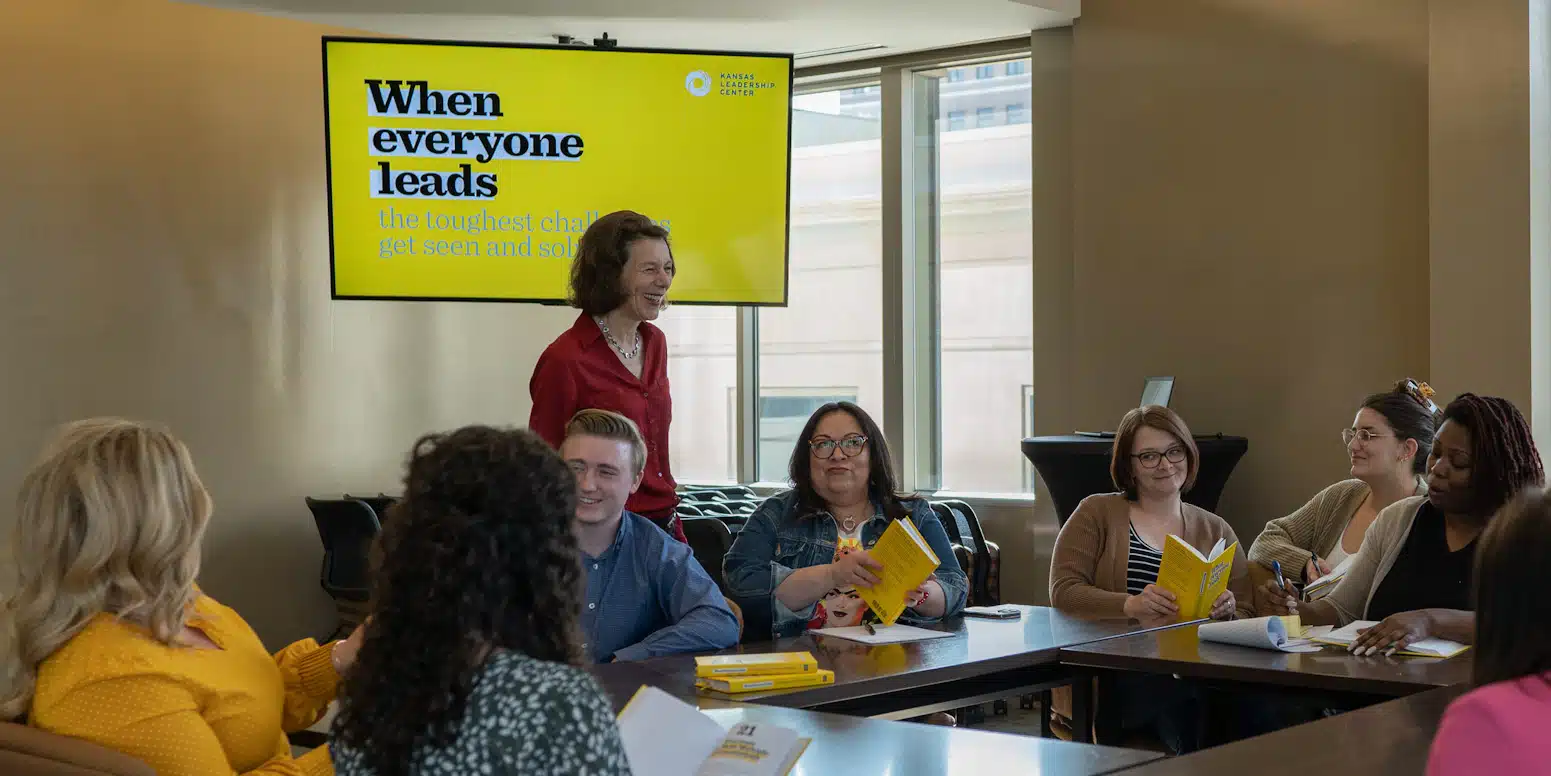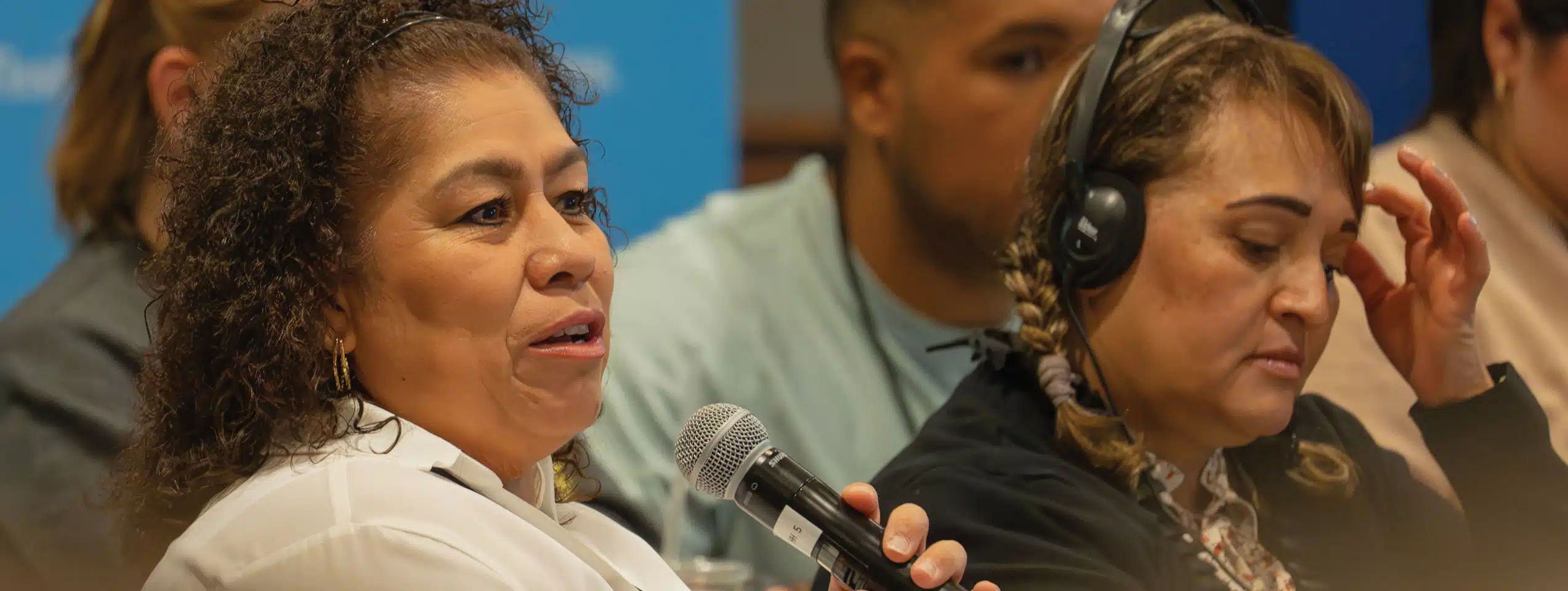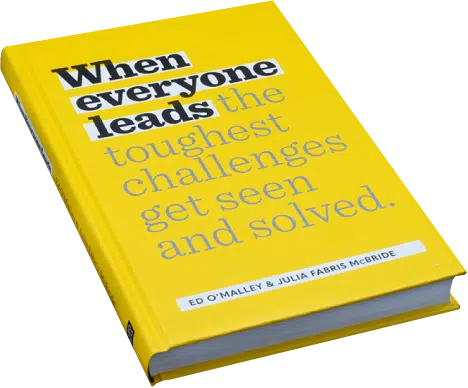THIRD FLOOR RESEARCH
Third Floor Research: The Big View*
Our modern world is constantly changing and becoming more unpredictable and complex. Communities and organizations can no longer rely on a single expert having the knowledge and skills to perform a specific task. They have had to adapt, expand their knowledge, skills and capacities, and work in new ways.
When one community or organization responds more effectively to its challenges than another, we know that a single leader taking charge can’t take all the credit. In these dynamic situations, many people are exercising leadership. Some have formal authority, while others energize change without position or title. To address this changing landscape, the field of leadership is rapidly advancing. New relationships are evolving and new terminology is emerging to describe the knowledge and skills required to respond
to and make progress on adaptive challenges.
To imagine the future relationships of leaders and followers, we start from the experience of working in the civic arena. Think of the civic arena as a crossroads where interests converge and stories collide. As the notion suggests, issues in the civic arena cross boundaries, some formal, some less so but equally powerful. Everyone is part of the mess. The challenges are adaptive, not technical, and so require mutual learning and problem solving to make progress. Expertise either does not exist or is distrusted. Values conflict. Ends, processes and content
As Kellerman (2015) demonstrated in her book, Hard Times, conditions in many other contexts mirror those in the civic arena. These trends are likely to continue well into the future. Kellerman concluded that leadership will have to learn
to cope with these conditions.
At Third Floor Research
we are asking the Question:
What kind of leadership
does it take to make progress on future challenges under these conditions?
Three dimensions advancing the field of leadership.
Context Leadership
Changes to the circumstances and environments we live and work in. Our surroundings, the people, and the challenges that arise in our daily lives are never the same and change over time. Leadership involves adapting to new environments and responding appropriately and specifically to challenges.
LEADERSHIP AS A COLLECTIVE RESPONSE
A collaborative environment where we learn and work together to solve problems.
HOW PROGRESS IS UNDERSTOOD AND MEASURED
Goal setting and monitoring progress becoming everyone’s responsibility.
The Big View:
The Missing Link
Advances in the field of leadership have affected leadership behaviors, organizational outcomes, and community capacity; however, the precise effects of these advances have remained unclear. There is therefore potential for embedding new ideas, theories, evidence, and academic research into large-scale leadership development initiatives, as well as testing those initiatives across various settings and evaluating their impact. The end aim of this is to create a feedback loop of theory- design-experiment-learning-theory.
Three Dimensions Advancing the Field of Research
Summary
THREE DIMENSIONS ADVANCING THE FIELD OF LEADERSHIP INCLUDE:
1. Leadership that shifts from one-size fits all to an activity that incorporates context. Leadership practices that are appropriate and conducive in one setting and time may not be appropriate in another (Wilson, Cummings, Jackson, and Proctor-Thomson (2018)). Therefore, in order to make progress, leadership involves adapting to new environments and responding specifically to challenges.
2. Leadership that shifts from an individual response to a collective response: Despite the overwhelming emphasis in leadership studies on leaders and followers, there is a growing effort to rethink leadership, in part, as the capacity of a social system to respond to challenges. According to Pares et al.’s (2017, p. 16) view, “leadership involves the collective efforts of multiple individuals to learn, adapt, and innovate in response to changing conditions.” ‘Leader’ and ‘follower’ roles are predicted to disappear, as they become no longer significant in contemporary leadership practices that require collective action to solve complex and adaptive problems (Steffensmeier & Chrislip, 2019). The currently emerging leadership competencies encourage shared learning and problem solving through a collaborative environment (Steffensmeier & Chrislip, 2019).
3. Leadership that shifts from measuring success/failure to measuring progress. A central premise of leadership is that it is about making progress, creating change, getting results, and improving life. However, exactly what this means is contested terrain. What one faction views as progress another experiences as loss. Who benefits? Who decides what constitutes progress? Making progress on adaptive challenges in the civic arena demands a collective response. Progress is evolutionary rather than revolutionary. This suggests that comparative measures of progress may be more effective than measures of movement toward a grand vision. The economist and philosopher Amartya Sen (2009, p. 106) contends that the fixation on transcendental ideals of justice gets in the way of making progress. Our evaluative efforts should be focused on how the world is becoming less unjust (ibid., p. 106). Reorienting the work of leadership from an overweening focus on achieving a grand vision – usually that of the leader – to a collective agreement that proposed actions will improve the current situation more accurately reflects the adaptive nature of the challenges and the complications of the context.
THIRD FLOOR RESEARCH INITIATIVES ADDRESS 3 LEVELS OF WORK:
Level 1:
Leadership Learnings
(findings to advance leadership teaching and learning)
Level 2:
Research Projects
(research studies on leadership development)
Level 3:
Global Database
(participant data from leadership development programs across the globe)
FINDINGS FROM RESEARCH INITIATIVES UNDERTAKEN ADDRESS 3 AREAS OF IMPACT:
1
Individual Development
2
Organizational
Change
3
Community and
Organizational
Impact
USEFUL FINDINGS ARE USED TO:
Inform
the leadership knowledge and skills required
to make progress on adaptive challenges.
Enhance
leadership development work delivered by KLC
and other leadership developers by improving concepts, program content and teaching methods.
Improve
improve evidence-based leadership development initiatives that are shared globally through a range of products (reports, podcasts, books).



